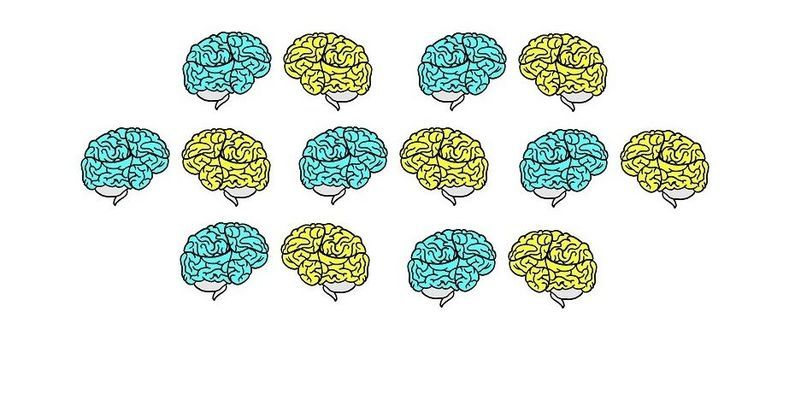HEART peer educators strengthen Temple community by promoting wellness
This undergraduate peer education program provides opportunities to enhance student well-being.

Some of those most integral to the Wellness Resource Center’s mission of educating students about well-being are, in fact, students themselves.
They’re called Health Education Awareness Resource Team (HEART) peer educators. Working with professional staff in the center to facilitate workshops and campus events, these undergraduates lead critical conversations about wellness and, in the process, they gain valuable experience in public speaking, event and program planning, community organizing, and crisis intervention, among other competencies.
“The primary goal of the program is to equip students to be positive change agents in the campus community,” said Liz Zadnik, associate director of the Wellness Resource Center.
To become a HEART peer educator, students must first become nationally certified by completing a training program that covers a variety of health and wellness topics. At the end of the class, they take the certified peer educator exam in association with the Student Affairs Administrators in Higher Education (NASPA). Undergraduates of any major throughout the academic year are welcome to participate.
Once they’re certified, peer educators host and even create programs that address a variety of wellness issues such as OWLs Stop Stigma, Let’s Talk About Cannabis, Rose-colored Glasses, How to Support a Survivor and Shed Some Light. The campus events organized and run by the Wellness Resource Center focus on four areas: alcohol and other drug prevention, interpersonal violence prevention, mental health and well-being promotion, and sexual health education. HEART peer educators can choose to facilitate events and activities that align with their area of interest. The Wellness Resource Center welcomes anyone to submit a request for programming through its online request form.
Leading this campus programming involves scheduling the event, presenting the content, tracking attendance, distributing program evaluation surveys to capture learning objectives and managing attendee dynamics, especially when someone asks a surprising question or makes a comment that could unintentionally stigmatize or further a harmful norm. The response to these peer-facilitated initiatives has been positive.
“Those who have participated in these peer educator–led programs have said that because of HEART peers, they want to attend future events and that they learned something they didn’t know before,” said Zadnik.
Additionally, peer educators help the professional staff with social media and other communications to ensure the center’s offerings are student-centered. They also serve as administrative assistants, working at the front desk to greet visitors and create a warm, affirming, nonjudgmental space for students.
“We want students to be greeted by a peer because we’re deeply invested and believe in the power of peer support and education,” said Zadnik. “I can’t imagine how our office would function without HEART peers. These students offer an invaluable service to the campus community.”
HEART peers also benefit from the program. According to NASPA’s National Peer Educator Survey, which benchmarks peer educators across colleges and universities, only 7% of peer educators felt strongly or very strongly about being part of the campus community before becoming HEART peers. After being in the program, 93% felt that way. The survey also found that Temple student peer educators are more likely to have a desire to help others compared with the national average. Through the program, some have discovered a passion for public health or a skill they’ve acquired. “We’re honored and privileged to offer that space for students to learn who they want to be and make a difference,” said Zadnik.
With about 35 peer educators currently, the program is set to grow to 50 next semester after the current cohort of students completes the certification course. Each month, it holds informational roundtables led by HEART peers so that students can ask them about the program and learn more about the center.
While the center also offers programming led by professional staff, its foundation is its HEART peer educators. “As administrators, when we facilitate programs, the dynamic is going to be different,” said Zadnik. “Conversations among peers are different by nature. Peer educators serve as role models who want to be honest, maintain good boundaries, and offer accurate information and make it accessible.”


